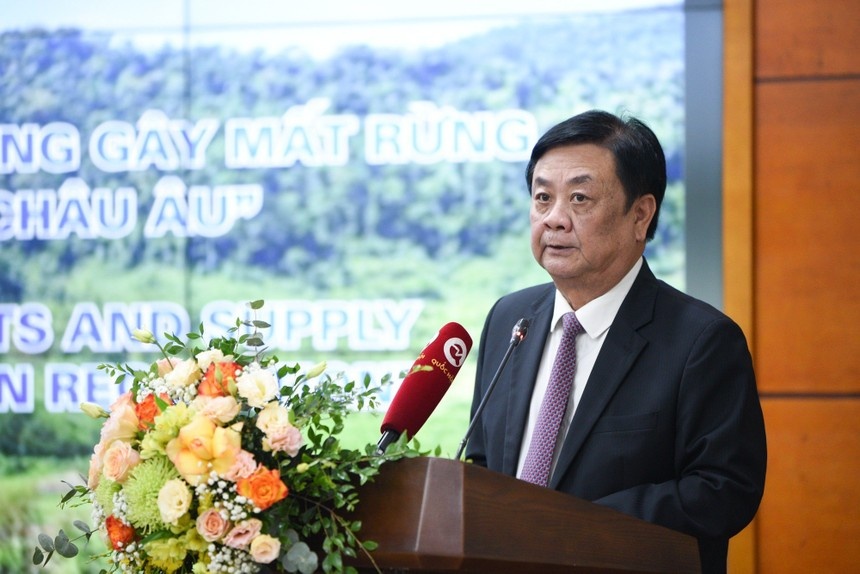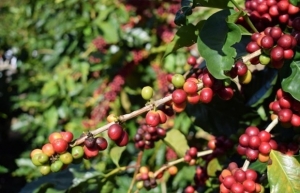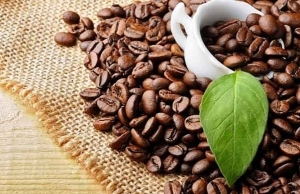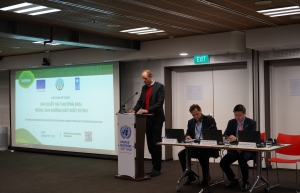Deforestation-free coffee production to comply with EU regulations
 |
| Le Minh Hoan, Minister of Agrilculture and Rural Development |
The conference was co-chaired by Le Minh Hoan, Minister of Agriculture and Rural Development, and Florika Fink-Hooijer, director-general of the Directorate-General Environment of the European Commission. In attendance were over 100 delegates, including representatives from departments under the MARD, local authorities in the Central Highlands provinces and districts, EU member states, coffee associations, and businesses, as well as domestic and international organisations.
The conference’s objective was to share an overview of the requirements of the new European Union Deforestation-Free Regulation (EUDR), the opportunities and challenges that this regulation may bring to Vietnam's coffee industry, and to propose solutions to support the coffee producers as they try to meet the new regulations within an 18–24 month preparation period. In addition, the national action plan for Vietnam's coffee sector to comply with EUDR was presented for the first time to key industry representatives and relevant international organisations.
Minister Hoan showed appreciation for the EU's recent support for the transformation of the agriculture sector towards more sustainable development practices. Pioneering policies from the EU, such as the Green Deal, From Farm to Fork, and the Circular Economy, have inspired and provided important references for the MARD in developing strategies for sustainable agriculture and rural development, as well as sub-sector strategies.
"90 per cent of global deforestation is driven by agriculture. As a major consumer market, the EU has a major role to play," Fink-Hooijer said, and he underlined the EU's willingness to support Vietnam's sustainable development. "The EU and Vietnam aim to address environmental challenges more effectively, contributing to the overall wellbeing of Vietnamese citizens and the preservation of the country's unique natural heritage," he said.
"The EUDR, which is expected to take effect in December 2024, will directly affect stakeholders in supply chains relating to wood products, rubber, and coffee, and will impact the livelihoods of farmers, especially smallholder farmers who comprise the majority in Vietnam," Minister Hoan said.
Supply chains will face various obstacles, particularly in terms of location data, traceability, monitoring systems, and deforestation-free supply chain management.
"These regulations are not only necessary to meet EU requirements for exporting, but MARD also considers them an opportunity to accelerate the implementation of Vietnam's agricultural development strategy," he added.
Tran Quynh Chi, regional director of Asia Landscapes at IDH, stressed the importance of public-private partnerships to implement EUDR compliance solutions in Vietnam. "With nearly 10 years of experience implementing the Central Highlands Landscape programme with public agencies and companies, IDH will closely collaborate with national and local partners in Vietnam to deploy comprehensive interventions to comply with EUDR. At the same time, we call for the participation and contribution of interested companies and organisations in the EUDR Action Framework to deliver significant impacts on responsible production, natural resource protection, and social inclusion."
Since the EUDR was passed by the European Parliament on May 16, it has had an impact on Vietnam's main export industries, including wood, coffee, and rubber. According to the regulation, many of Vietnam's agricultural products, especially coffee, imported into the European market must have GPS data at farm level, which will be used to assess the risk of deforestation through remote monitoring systems.
 | Rising demand for coffee in EU opens doors for increased Vietnamese offerings Europeans love their morning coffee – and Vietnam could continue to profit from this habit if domestic exporters make good use of the trade agreement with the EU. However, the competition remains active too, increasing the pressure from markets like Brazil and Southeast Asia, in addition to the seemingly ever-lasting challenges in freight costs. |
 | Can coffee supply of Vietnam satisfy Chinese demand? As the second-largest coffee exporter in the world, Vietnam is more than well equipped to represent a major supplier of China’s current and future demand for coffee. |
 | Vietnam moving towards deforestation-free coffee production The United Nations Development Programme (UNDP), the European Union, and the Vietnam Administration of Forestry jointly held a technical workshop on deforestation-free coffee production and commercialisation this week in Hanoi. |
What the stars mean:
★ Poor ★ ★ Promising ★★★ Good ★★★★ Very good ★★★★★ Exceptional
 Tag:
Tag:
Related Contents
Latest News
More News
- $100 million initiative launched to protect forests and boost rural incomes (January 30, 2026 | 15:18)
- Trung Nam-Sideros River consortium wins bid for LNG venture (January 30, 2026 | 11:16)
- Vietnam moves towards market-based fuel management with E10 rollout (January 30, 2026 | 11:10)
- Envision Energy, REE Group partner on 128MW wind projects (January 30, 2026 | 10:58)
- Vingroup consults on carbon credits for electric vehicle charging network (January 28, 2026 | 11:04)
- Bac Ai Pumped Storage Hydropower Plant to enter peak construction phase (January 27, 2026 | 08:00)
- ASEAN could scale up sustainable aviation fuel by 2050 (January 24, 2026 | 10:19)
- 64,000 hectares of sea allocated for offshore wind surveys (January 22, 2026 | 20:23)
- EVN secures financing for Quang Trach II LNG power plant (January 17, 2026 | 15:55)
- PC1 teams up with DENZAI on regional wind projects (January 16, 2026 | 21:18)






















 Mobile Version
Mobile Version